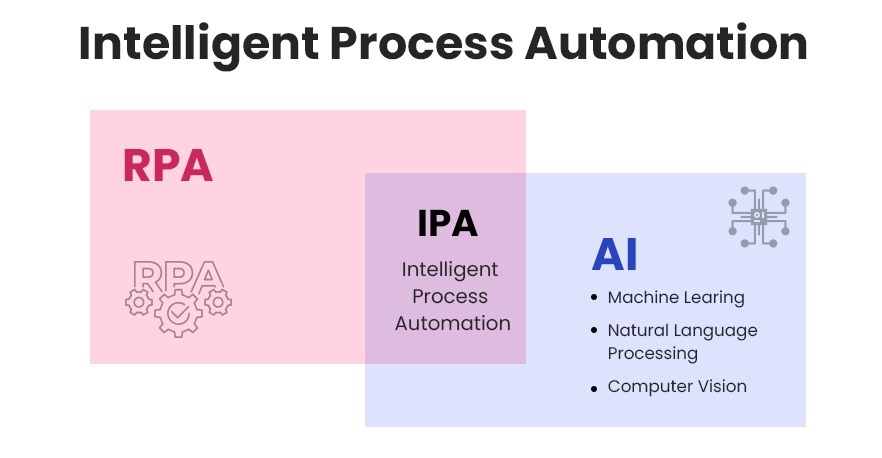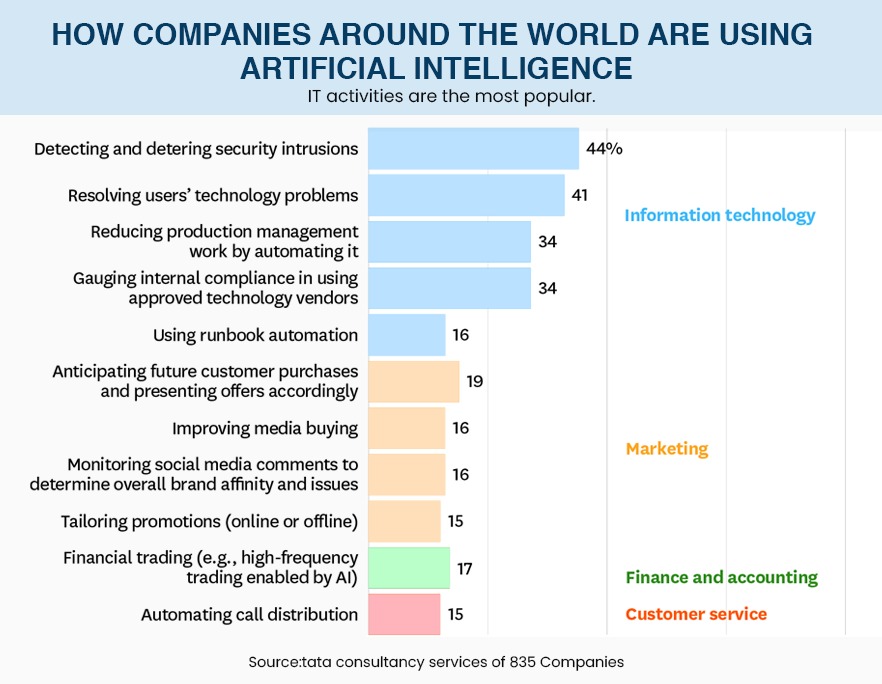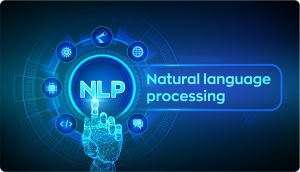
Sixty-one percent of organizations in the U.S. have integrated some form of automation in their business processes. Yes, we get it that automation does not necessarily involve AI but the more advanced form of business process automation does. Intelligent process automation is where machines can “learn” from past experiences/situations and make their own decisions based on them. The best example of this is customer service, virtual assistants like Apple Siri, Amazon Alexa, and Google Assistant. But you don’t need to be a humongous large organization like these three to automate your business processes.
Among businesses implementing automation, most have automated highly repetitive back-office functions. Automation of functions is most extensive in IT, operations and production, customer service and finance. This is usually a good place, to begin with before incorporating AI into your business processes. Businesses need to be “AI-ready” if they want to go beyond basic automation.
Types of process automation
As we said, AI technology is used in automation but many automated processes are devoid of Intelligent automation. Here are the different types of automation
Basic automation: This usually takes very simple tasks and automates them by using tools to centralize routine tasks. It is also called ‘fixed automation’ since it carries out a fixed task with defined steps and allows for no deviation from this. Robotic process automation (RPA) and business process management are part of this type of automation. Many back-office tasks like filling forms, extracting data or moving files are the best use cases for this format.
Business Process Automation: This requires dedicated software and business apps. It typically involves 3 functions: automating processes, creating a centralized information hub and reducing human input for task completion. Employee onboarding, digitizing purchase order processing (even connecting them to an SQL database to pull in customer information) are a few examples of business process automation.
Integration automation: Integrated automation can be defined as a software workflow that is designed to work consistently and operate independently once parameters are set. An integration automation platform or IAP will provide API orchestration tools that allow different components of the infrastructure to communicate and coordinate the processing of data. Email marketing automation is one example, customer support chatbots are another, where the chatbot can answer typical queries and transfer to a human when it cannot.
Artificial intelligent automation: This is the most advanced and complex form of automation. When AI technology is added to automation it gives the machines the ability to “learn” and make decisions based on this past learning. Intelligent automation as it is more popularly known as leverages AI and Machine learning along with data analytics to discover new ways, to process info, manage and remediate processes.
IPA tools (like natural language processing) in shipping can analyze shipping data and optimize shipping routes, remove bottle necks between departments so as to prevent delays and efficiently optimize the available resources.

How to know if your business is ready for AI technology
As Forbes has highlighted in an article back in 2020, most businesses will need to consider using AI regardless of company size or industry. The truth is that most businesses are already using AI in many processes, such as in their email automation strategies – of course, in these instances, it is their email providers that have developed the automation tools that are used by their clients. However, in this article we are focusing on business that build their own intelligent automation strategies for internal critical processes. In today’s market you do not need an in-house IT team to leverage productivity boosts by using AI tools. Low-code platforms and existing tools and libraries, help businesses of any size to tap into the power of AI and machine learning. However the caveat here is that AI depends on volumes of quality data for correct decision making.

Here is a checklist that will help you audit where your company currently stands on AI road map readiness.
1. You need a great deal of structured data: Information is what feeds AI algorithms. You must consider what business problem you want AI to solve and then evaluate if you have enough data to teach the models. The amount of data needed will depend on the complexity of the task. Luckily though, most enterprises have over 55% of unstructured data getting into their systems every year. So, the quantity of data is usually not the problem. However, AI needs to work with structured data to provide accurate predictions or actions. Even if the company has huge backlogs of unstructured data, there are many auto-tagging and auto-classification solutions available that run on deep learning and machine learning and are specifically developed for classification for different industries and data types.
2. Have you migrated data to the cloud: To implement any intelligent process automation, data transfers will be essential. This is possible only if your organization is already using cloud-data storage or is considering migrating on-site storage to the cloud. AI’s cognitive abilities need large volumes of data, the cloud environment is necessary to make the data easily accessible. This is why AI and the cloud is considered a perfect key-lock combination.
3. Are you financially ready: Purchasing or developing AI solutions for your organization can be expensive. You will also need to factor in time and cost for organizational readiness and training staff. Developing a minimum viable product can cost up to USD 15,000 and a complete AI solution can go from USD 20,000 to over a million based on the complexity of the AI solution and how much data it will need to consume.
It is also important to consider external factors such as regulatory compliance and success indicators of similar AI solutions implemented by competitors in your industry.
Finally, the make vs buy decision
AI solutions are not instantaneous, it takes a lot of ground work to know if the solution you have decided on will benefit your business the way you expect it to. Implementing AI into business processes should be iterative and automated tasks should be ramped up over time as cost and productivity benefits start adding up. Companies looking to implement AI solutions will have to decide if existing ready-made options will serve their need or if they should opt for a more customized approach. In the latter approach, many proven cost-effective, outsourcing development partners like iTech India have the expertise to deliver you AI solutions that exactly fit your organization’s requirements. Have a discussion with our experts to know more.









